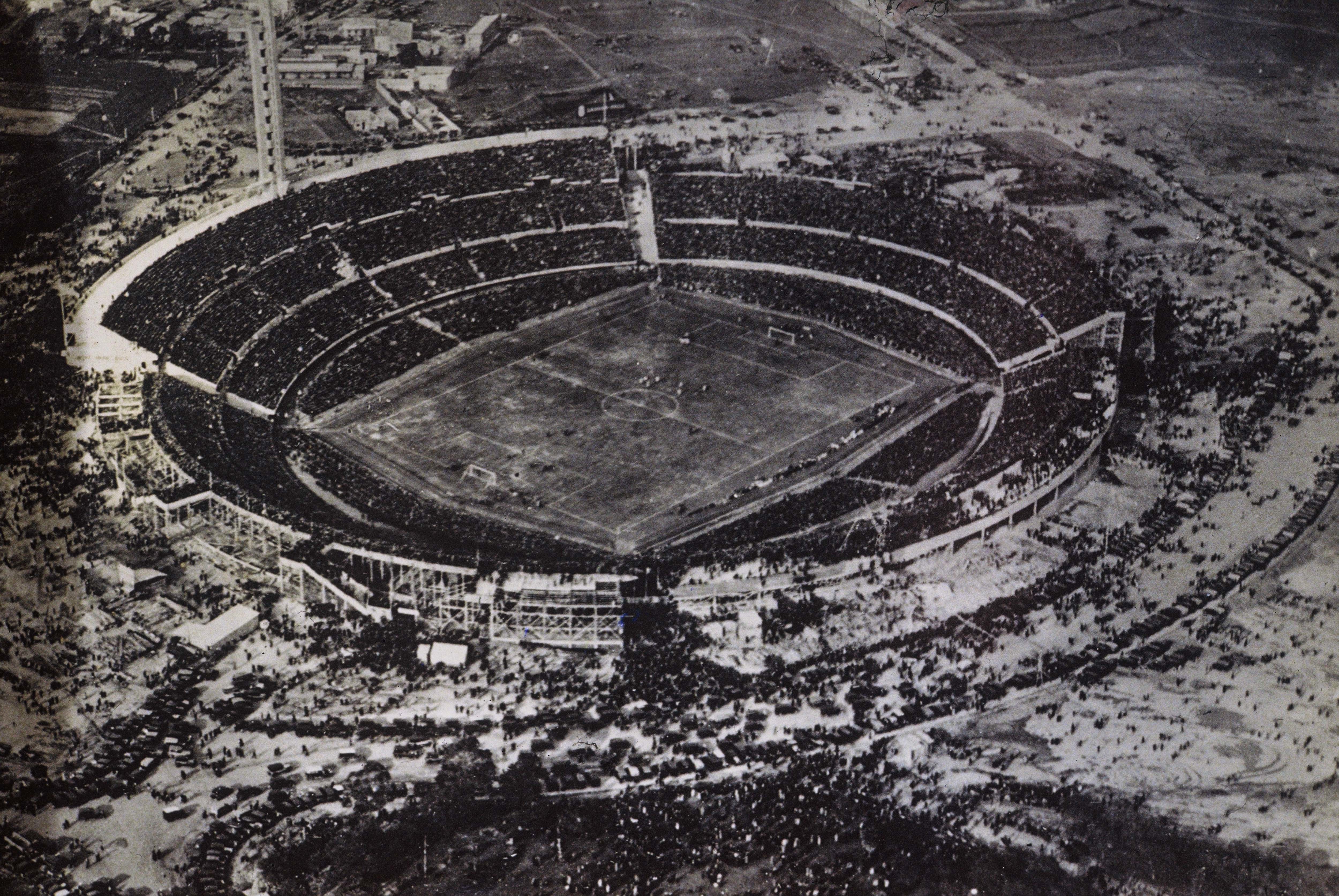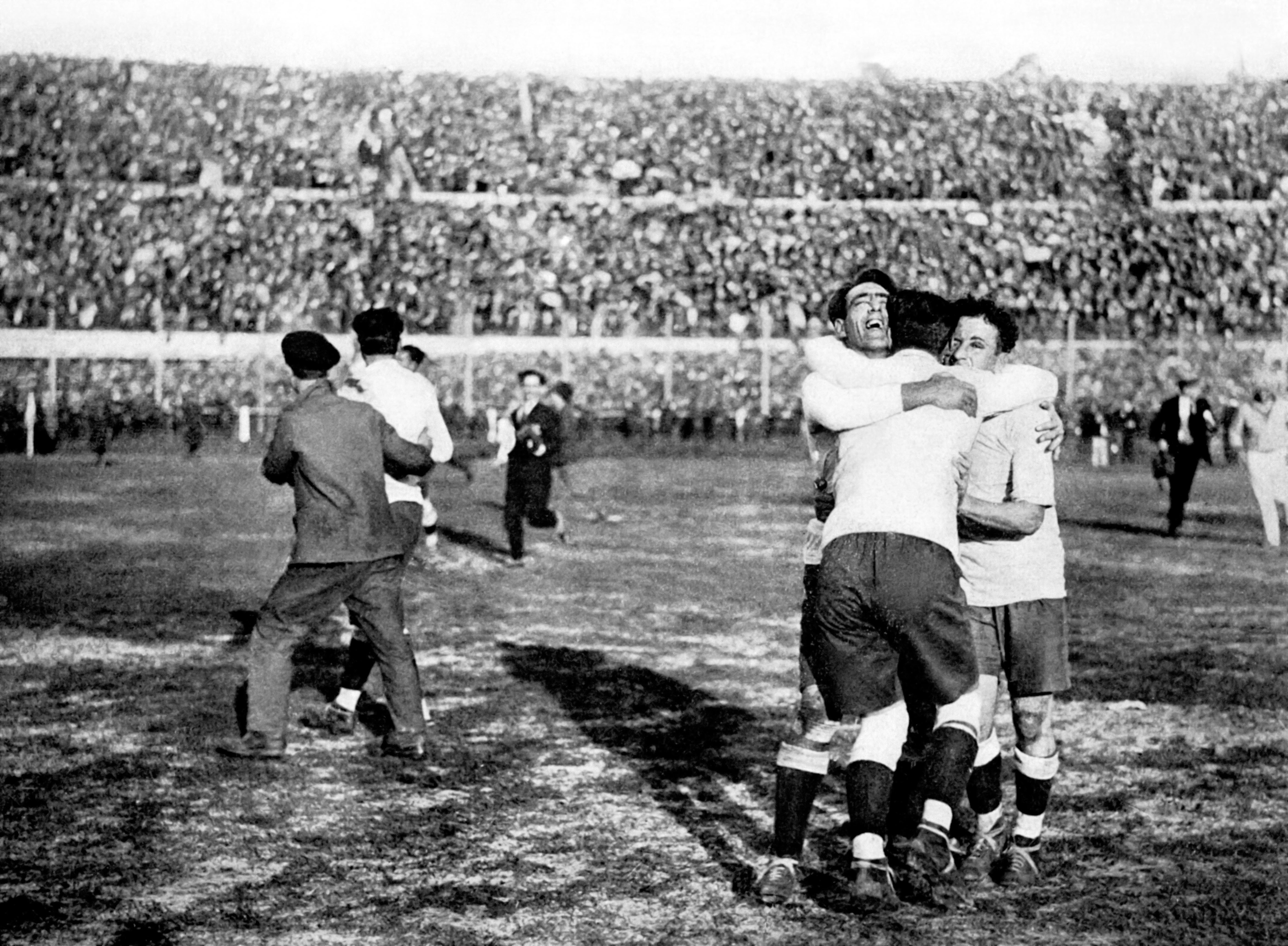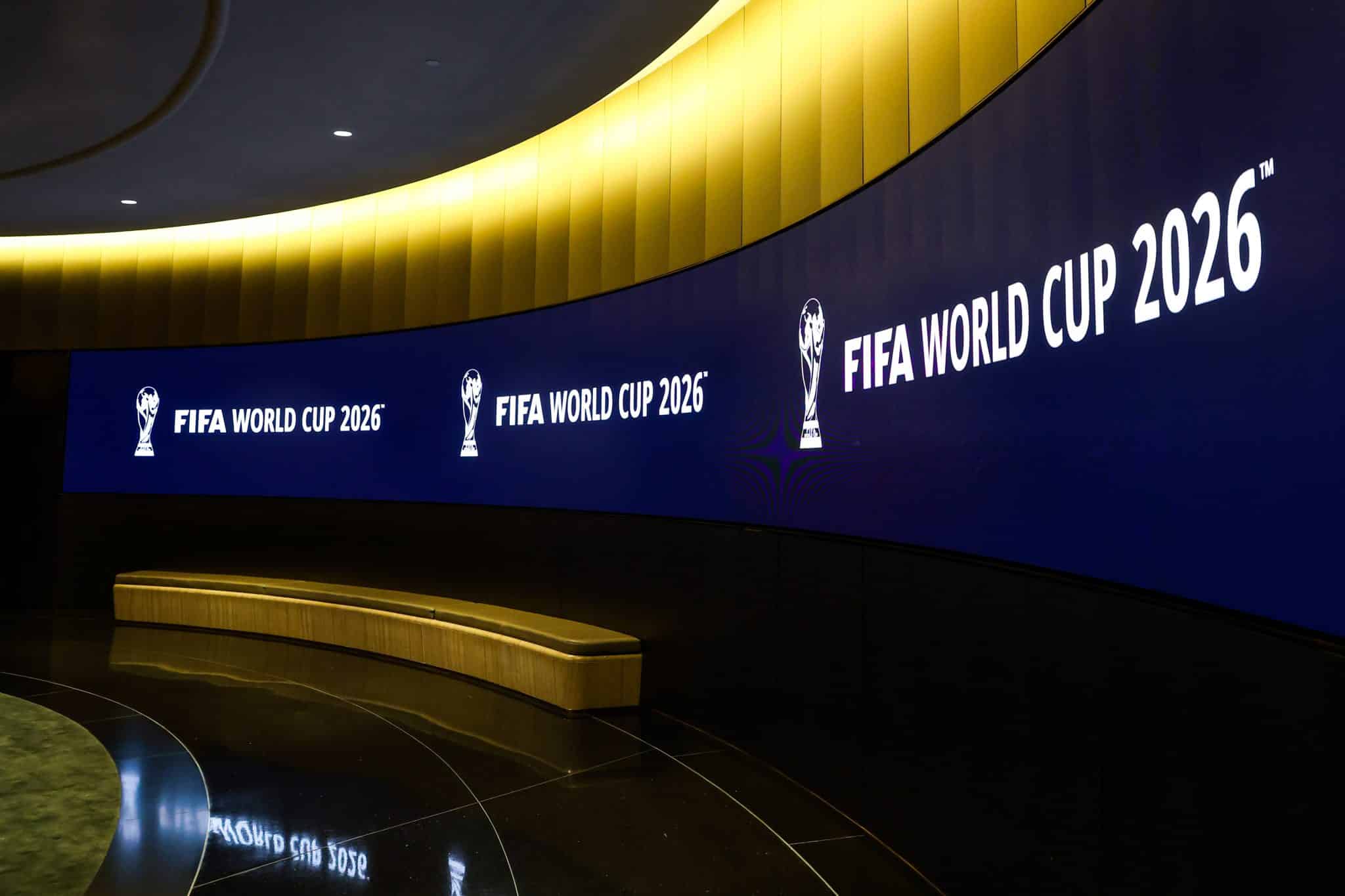The 2030 World Cup host will be the South American trio of Argentina-Uruguay-Paraguay, thus returning the global mega-event to its first-ever host, Uruguay, in its centenary edition. Or will it?
The President of CONMEBOL (the South American football federation), Alejandro Domínguez, revealed on X (formerly Twitter) on Wednesday 4 October that “the host of the opening matches of the Centenario World Cup will be Uruguay, Paraguay and Argentina.”
So, will the 2030 World Cup be in South America? Well, it's a little confusing. What does Domínguez mean by “the opening matches”?

2030 World Cup host – a confusing start
For context, there was another joint-bid competing with Argentina-Uruguay-Paraguay to host the World Cup 2030. The European-north African combination of Spain-Portugal-Morocco have looked favourites to win the bid to become World Cup hosts for some time now, with Morocco joining the Iberian pair more recently.
It now seems an extraordinary solution could be taking place whereby the South American countries host the start of the 2030 World Cup in a symbolic gesture to return the competition to its first-ever host, Uruguay. After this, the tournament will then be played in Spain, Portugal and Morocco.
How can this possibly work? What are the logistics? Well, it's fair to say it's unclear. It's also highly unusual for an announcement such as this one to be made by an individual, rather than FIFA, the organisers of the World Cup, or CONMEBOL. Perhaps this President has his eyes set on personal fame and glory.
We aimed high and dreamed big. The 2030 Centenario World Cup starts where it all began.
The host of the opening matches of the Centenario World Cup will be Uruguay, Paraguay and Argentina.#MundialCentenario 🏆
— Alejandro Domínguez (@agdws) October 4, 2023
Minutes after his announcement on X, a press conference was held by CONMEBOL to discuss the situation further.
2030 World Cup host – bidding details
This summer, FIFA announced that it was delaying its search and decision on a 2030 World Cup host, for a variety of reasons.
The vote has been moved to the final quarter of 2024.
It was also stated in summer that FIFA would finally settle its ‘bid rules' by the end of October 2023, officially launching the bidding process after this.
A potential Saudi Arabia-led bid
There are always many interested parties for each international tournament bidding process, and many drop out at an early stage. That was the case with a Saudi Arabia-led bid, which was set to also include Greece and Egypt. It looks like the Saudis will now target the 2034 World Cup instead.
The two competing bids
A Spanish-Portuguese joint-bid has long been the European favourite, and Morocco were added to that bid recently. Morocco will host Afcon 2025 and their preparations for that tournament could help prove their suitability for a World Cup.
The South American federation has long touted the symbolism of the World Cup returning to Uruguay 100 years after the very first tournament was played there.
Even if the South American bid loses, Uruguay could still be honored as the inaugural host by being given some of the 104 games to stage at the same Estadio Centenario in Montevideo.

FIFA said in summer that it needed “additional consultation with all key stakeholders [for the 2030 World Cup] which will mark the centenary of men's football's showpiece tournament.”
So, who really will host the 2030 World Cup?
In short, the 2030 World Cup could be hosted across a remarkable six countries and three continents.
The 2026 World Cup will be hosted across North America by neighbours Canada, Mexico and the USA. There will be 48 teams and 16 host cities.

The tournament to follow could be even larger and even more confusing. It truly will be a ‘World' Cup.
Three group stage games will be hosted in Uruguay – who will almost undoubtedly have the opening game – and their neighbours, Argentina and Paraguay. After this, the tournament will up sticks and be played across south-western Europe and north Africa in Spain, Portugal and Morocco. A remarkable turn of events!
The real 2030 World Cup host: Spain, Portugal and Morocco
So, a symbolic gesture to return the World Cup to Uruguay and its neighbouring countries, but the real World Cup 2030 host will be the joint-bid of Spain, Portugal and Morocco.
This means the World Cup will be played in Africa for only the second time, Morocco following in the footsteps of South Africa, who hosted in 2010.
Portugal will host their first-ever World Cup and Spain will welcome the globe's best teams to their nation for the first time since 1982, the only other occasion on which they've hosted the competition.
2030 World Cup host: The story in short
- Spain, Portugal and Morocco will host the 2030 World Cup
- However, the openings three matches will be hosted in Uruguay, Argentina and Paraguay
- Each of those countries will qualify automatically and play at home in their opening game
- Uruguay were the host of the first World Cup in 1930
- Paraguay join the joint-bid with Argentina because the South American federation CONMEBOL is based in Paraguay
- The opening ceremony will be in Spain, Portugal or Morocco, not in South America
- Spain, Portugal and Morocco will all qualify automatically, too
- The 2034 World Cup can now only be hosted in Asia or Oceania
2030 World Cup stadiums
There are some stadium requirements for each World Cup and FIFA currently demands 14 all-seater stadiums whose capacities are larger than 40,000. Further to this, there has to be several larger grounds, with the opening game and final needing an 80,000 capacity and the semi-finals 60,000 capacities.
We don't know which will be the 2030 World Cup stadiums yet, but you can expect the newly renovated Santiago Bernabeu of Real Madrid and Camp Nou of Barcelona will feature in Spain. Portugal's primary stadiums are found in Lisbon, where Sporting Club and Benfica play, but FC Porto's ground could also be used.
In Morocco, the stadiums set to be used in Afcon 2025 will be favourites. The North African country looks likely to renovate the Prince Moulay Abdellah Stadium in Rabat, the Ibn Battuta ground in Tangier and others in Fez, Marrakech and Agadir. There are also plans for a huge arena in Casablanca, with a suggested capacity of 93,000 fans.
In Uruguay, meanwhile, the stadium used will be the Estadio Centenario, built for the 1930 World Cup and to commemorate the centenary of Uruguay's first constitution. Its name will now work perfectly and the centenary edition of the World Cup, the 2030 edition, is hosted in the South American country.
